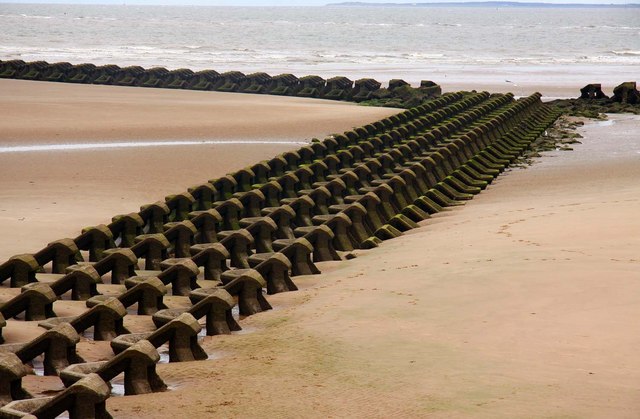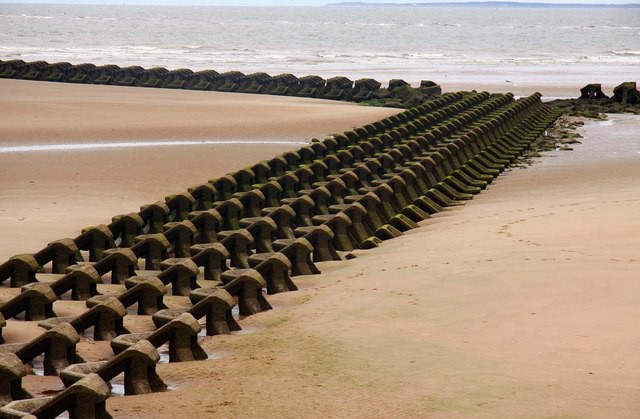Erosion caused by weathering on England’s south coast is revealing some vital coastal defences from World War Two.
A three mile stretch of the British coastline in the New Forest region, from the town of Barton on Sea to Milford on Sea has been exposed.
The exposure comes as natural erosion occurs and it has revealed the vast expanse of World War Two defense lines put in place by the British military in anticipation of a possible land invasion by the Germans.
The defenses include a large field of metal poles and concrete posts intertwined with rolls of barbed wire, alongside pill boxes, all emerging from the bottom of the seabed.
After the war the defenses were abandoned and left to rot and become covered on the deep shoreline of the English Channel. Now that the defenses are becoming evident war enthusiasts, researchers and archaeologists are visiting the site to document and review the scene so that they can discover more about Britain’s land defense strategy.
The coastal erosion is caused by sea storms lashing the coastline as well as the strength of the tides over the years. The defenses had been erected by the British Army’s Wiltshire Regiment in 1940 when the threat of a German land invasion was at its highest and the Blitz was taking place across the UK, The Telegraph reports.
Because the defenses are so near to the shoreline, local authorities are warning swimmers and bathers to not venture into the sea at certain points on the beaches. The danger is at high tide when the defences can’t be seen by the naked eye since they are hidden underneath the sea. To provide even more warning, buoys have been anchored to some of the metal poles so that the area is clearly marked whether it is low or high tide.
The local authorities have decided to remove much of the defenses during the next set of lowest tides, which will probably be at the end of August, and they will have access only for a short period of two hours at a time. Engineers at the site said that the poles had been installed in a lattice formation along the shoreline and the pill boxes were starting to collapse. They expect these kinds of defenses to continue being unearthed as erosion of the coastline is ongoing.
A lot of the defenses were removed at the end of the war, but a lot was left to submerge under the waves. Five tonnes of materials have already been moved by authorities this year alone.
Image Copyright Steve Daniels and licensed for reuse under this Creative Commons Licence.
 Steve Daniels and licensed for
Steve Daniels and licensed for 